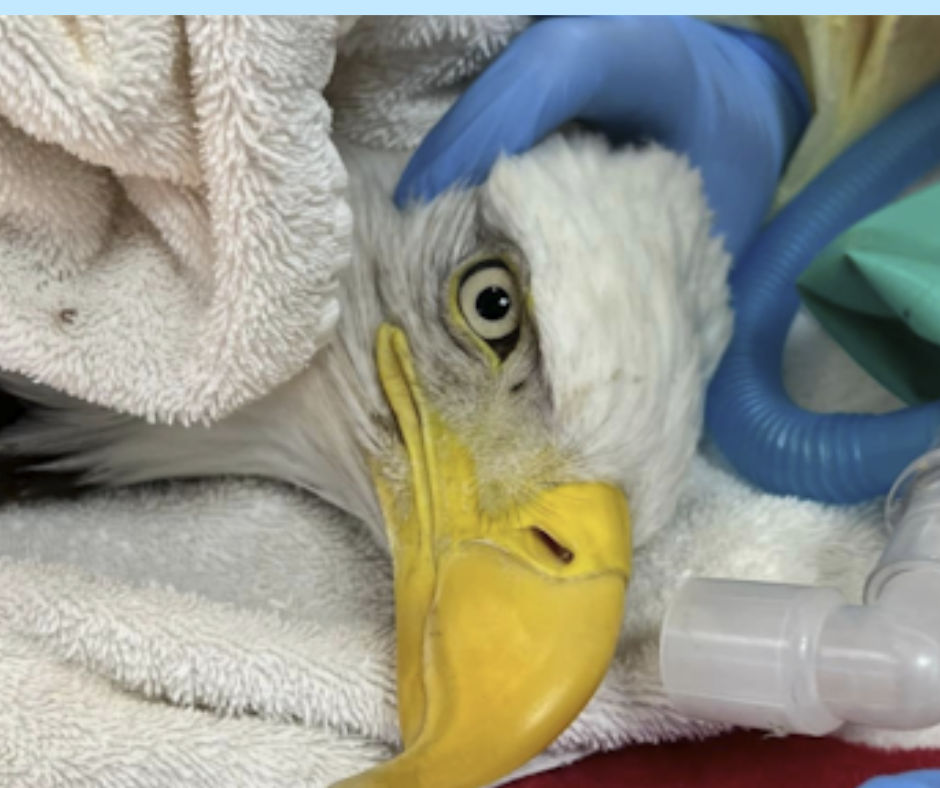When Pest Control Goes Too Far
A very common way of controlling rodents is harming other wildlife. Here's what you can do.

By: John Keely, Burlington Conservation Administrator (Retired)
Have you ever wondered about those small, black plastic boxes placed near food establishments, commercial buildings, the mall, on city sidewalks, or at construction sites?
You may not have even noticed them, but once you know what they are, it might seem like they are everywhere.

This story was featured in our Winter Magazine
Read our magazine today for your guide to thriving this season in Burlington.
The boxes are bait stations for rats and mice, and the bait inside usually contains poisons called Second-Generation Anticoagulant Rodenticides (SGARs), a type of poison that works by interfering with the rodent's ability to clot blood, ultimately causing them to bleed internally and die.
Unfortunately, the death is not quick, resulting in secondary poisonings when sick rats or mice are consumed by birds of prey, foxes, and even sometimes dogs and cats.
Around the region, and across the nation, dead or dying animals poisoned by SGARs are keeping wildlife rehabilitators very busy.
Sometimes the poisoned critter can be saved, but often it cannot. In 2023, locally beloved female Bald Eagle MK, a regular at Horn Pond in Woburn, succumbed to rodenticide poisoning despite the New England Wildlife Center’s best efforts to save her.
According to the Massachusetts Department of Agricultural Resources, in 2022, 96% of all rodenticides used by pest control companies —about 559,000 pounds — were SGARs.
The sad irony is that the victims of secondary poisonings are nature’s rodent control experts. Hawks, eagles, owls, coyotes, foxes, and bobcats eat many rodents. Killing rats’ predators only increases their population!
Massachusetts Audubon, the MSPCA and other organizations have sponsored legislation to restrict SGARs statewide. They point out that there are safer alternative methods of controlling rodents, collectively termed Integrated Pest Management (IPM).
IPM includes housekeeping actions such as sealing entry points where rodents can enter and keeping trash receptacles sealed. Alternative trapping methods include snap traps, electronic traps and CO2 traps. Some communities have even used rodent contraceptives.
Two bills are currently stalled in the state legislature, each called “An Act restricting the use of rodenticides in the environment”: House bill H.965, with Representative Ken Gordon signing on as a sponsor, and Senate bill S.644, which Senator Cindy Friedman has sponsored.
Unfortunately the bills have been stuck in the Joint Committee on Environment and Natural Resources for months, and lobbying from the pest control industry could mean that the bills advance no further, which is what has happened in past years.
While a state law restricting the use of SGARs (following California’s 2021 lead) would be the best solution, many Massachusetts communities are not waiting for the state to act.
This year Concord Town Meeting overwhelmingly voted to petition the state legislature for a Home Rule Petition to ban the use of SGARs in town on both public and private property.
Several towns, including Arlington, Belmont, Lexington, Brookline, Lowell, Grafton, Orleans, Newton, and Newbury, have chosen not to use SGARs on municipal properties.
Others are considering or already have partial restrictions.
What can you do if you want to see action taken in Burlington on SGARs?
If you support statewide restrictions, reach out and let your legislators know this is important to you.
The decision not to use SGARs on municipal properties could be made by the Select Board and the School Committee (for the school properties). To restrict them on private properties would require the same home rule petition route that Concord is pursuing.
To find out what more you can do or for more information, check out the Rescue Raptors campaign at MA Audubon and the rodenticide page on the MSPCA website.





